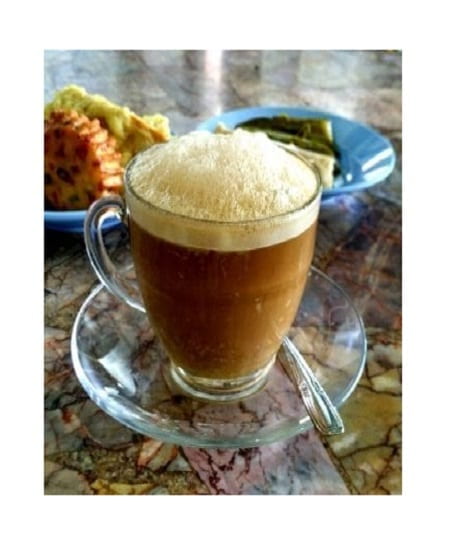What’s in a cup of coffee?
In the modern (read: neoliberal) world, coffee is a part of everyday life, the morning drink one picks up on the way to work. Coffee, or kopi in Indonesian, takes on a very different significance in Aceh. If in the modern world, coffee is an individualized drink that gives one the energy boost for the solitary work in the office, kopi is an inherently social drink in Aceh.
One of the things that I quickly learned coming to Aceh is that everything happens at the warkop (or warung kopi, literally coffee shop). It is Aceh’s community and social space par excellence, but many also use it as their “second office” (which is where most people get their wifi), classrooms, meeting rooms, consultation space etc.
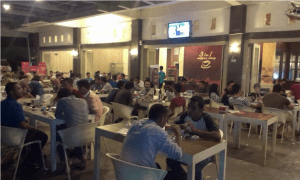
Politicians, too, each will have their own “base camp” coffee shop, where their constituents can approach them freely. We even saw civil servants collecting the signature of a more senior civil servant in the coffee shop. Because the coffee shop is where everyone goes to, it is where all sorts of networks are formed.
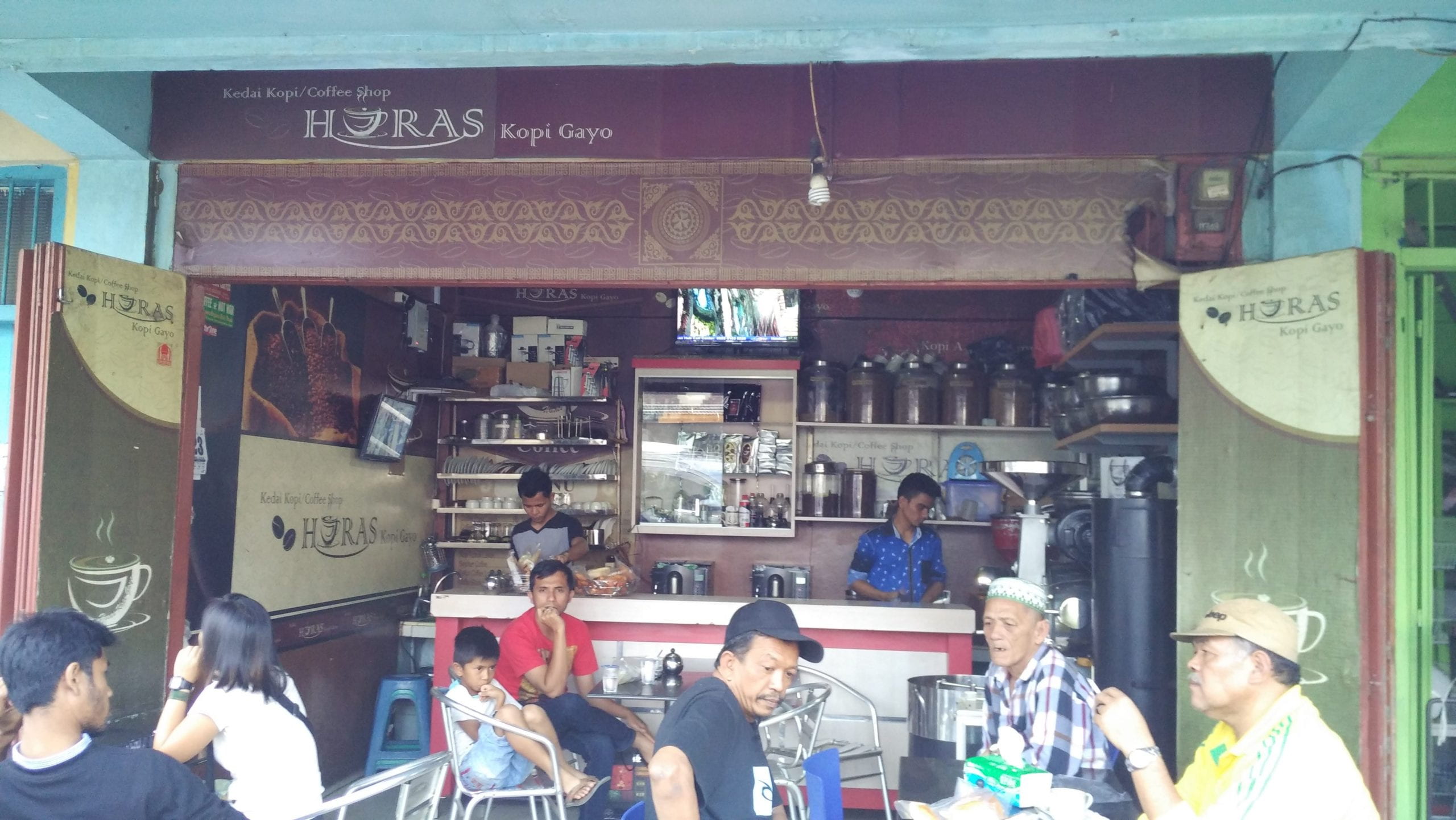
For many Acehnese, the coffee shop is always contrasted to formal spaces. While the latter are felt to be rigid an uneasy (baku), the coffee shop is a place where rank and status disappear.
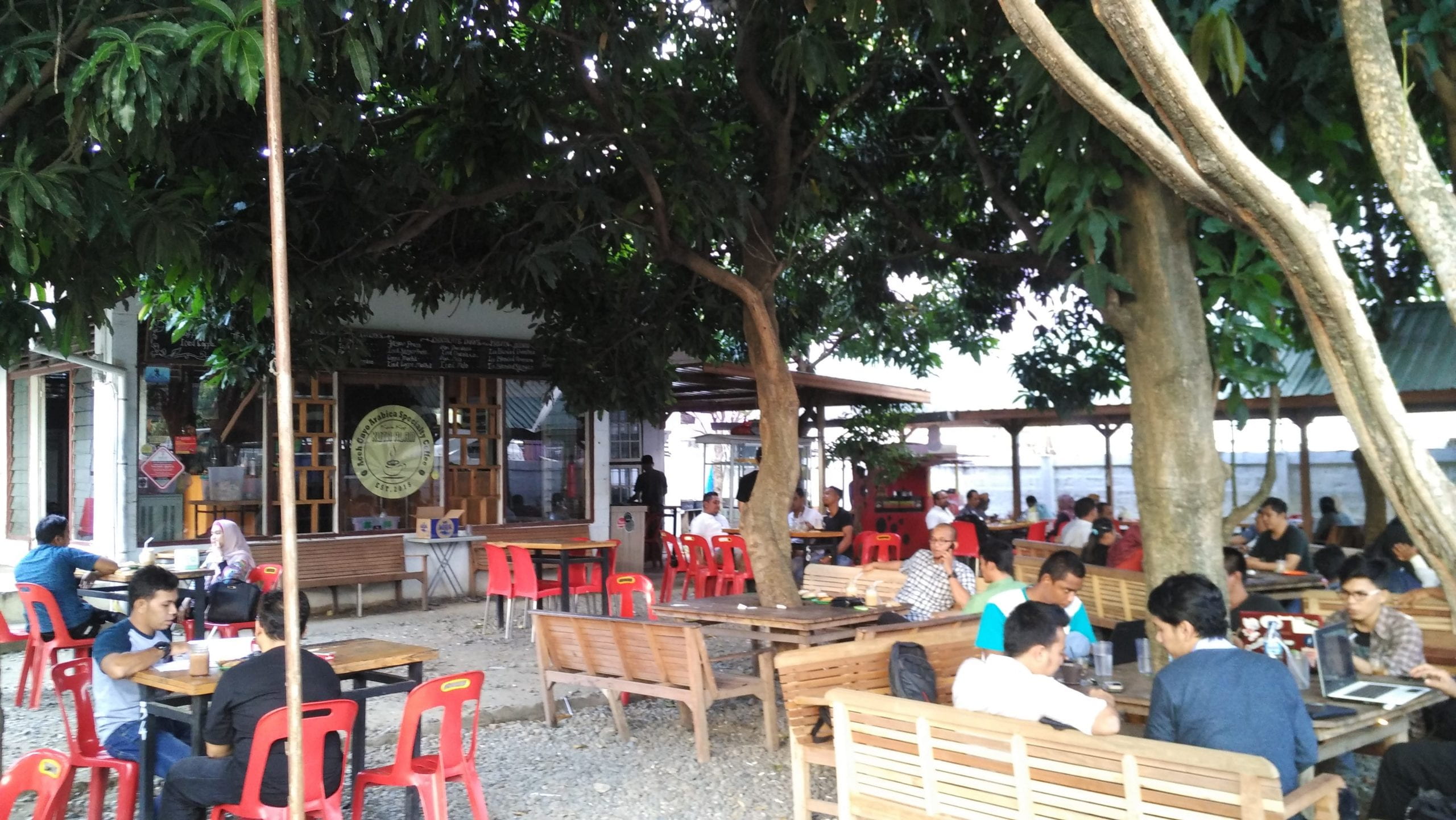
It is thus unsurprising that the coffee shop is an important site of contemporary politics in Aceh. Historically, coffee shops were important sites for the exchange of political ideas in Europe as well – it was the staging area before the actual revolutions. Perhaps in the modern world, the rental cost of land is so high that it is difficult, if not impossible, to see the coffee shop as anything other than a business. In Aceh however, the coffee shop remains an affordable site of political community and political action.
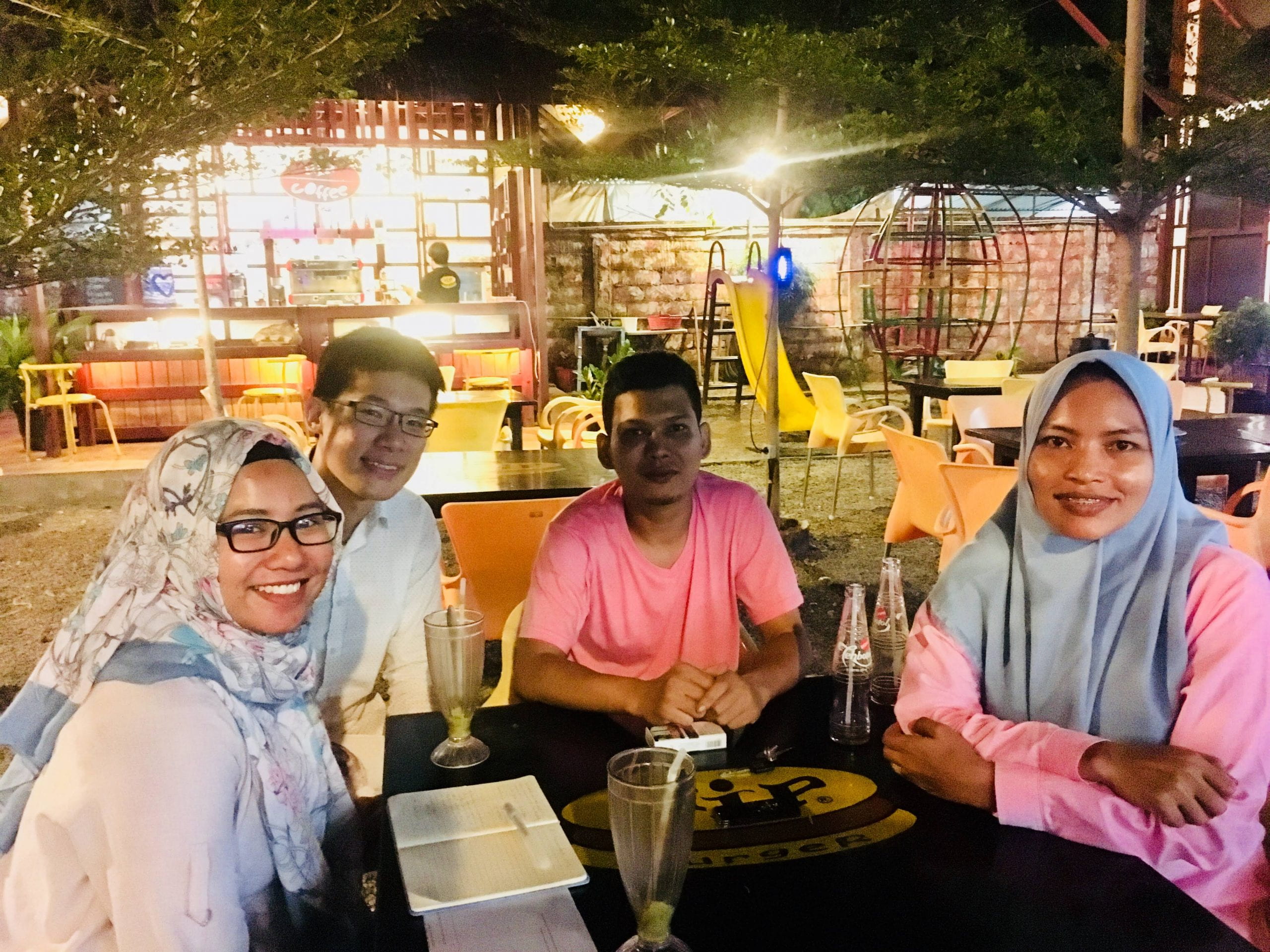
This was not always the case however. Aceh’s civil war peaked in 2001-2004 when it was put under martial law. Curfews were imposed, and there were frequent spot checks on the roads. These practices, called “sweeping,’ isolated Acehnese from each other – which was part of the Indonesian’s military strategy of breaking up the separatist movement (Gerakan Aceh Merdeka). Ironically, it was between the years 1996-2004 that Aceh’s student activists’ networks would begin to form. A group that sided neither with the armed separatists nor the Indonesian military, this group rallied around the opposition to human rights violations from either side. They collected reports on human rights abuses and reported them to their networks around the world, hoping to use international pressure to restrain the Indonesian military; they also actively gave “political education” to the separatist combatants on non-violent struggle. Many of them also provided humanitarian relief to internally displaced people from the conflict.
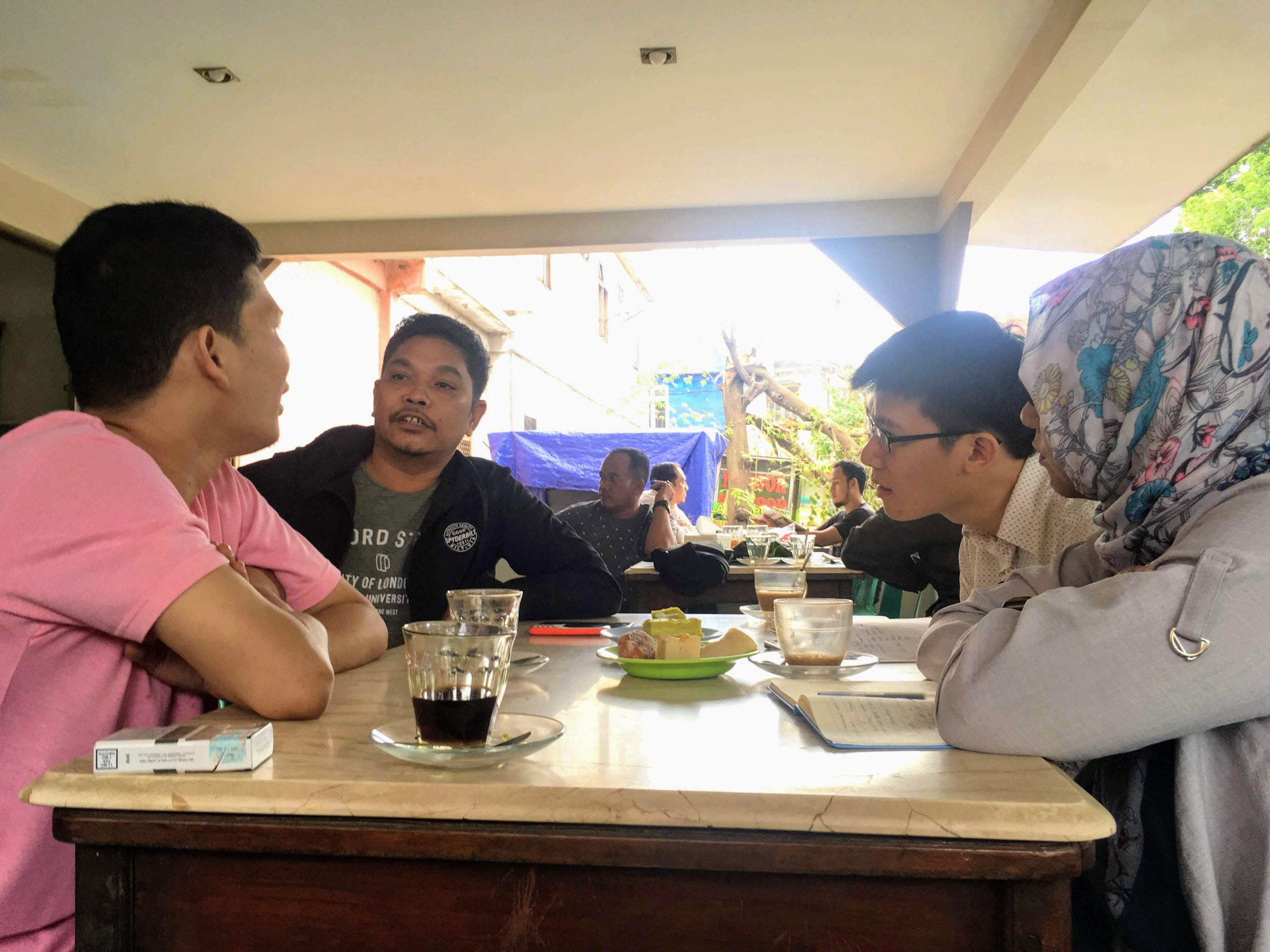
Where did these networks form? From the conversations we had with former activists in coffee shops, it seems that many of these networks began in Banda Aceh’s universities – where Acehnese from all over the province would go to (menrantau) get their degree. In the 1980s and 1990s, Aceh’s civil war had been largely fought under the radar, what the Acehnese refer to as DOM (Daerah Operasi Militer). The activists recall that nobody knew that there was fighting, or the extent of the conflict. They had been told that the Indonesian military were fighting drug smugglers or terrorists.
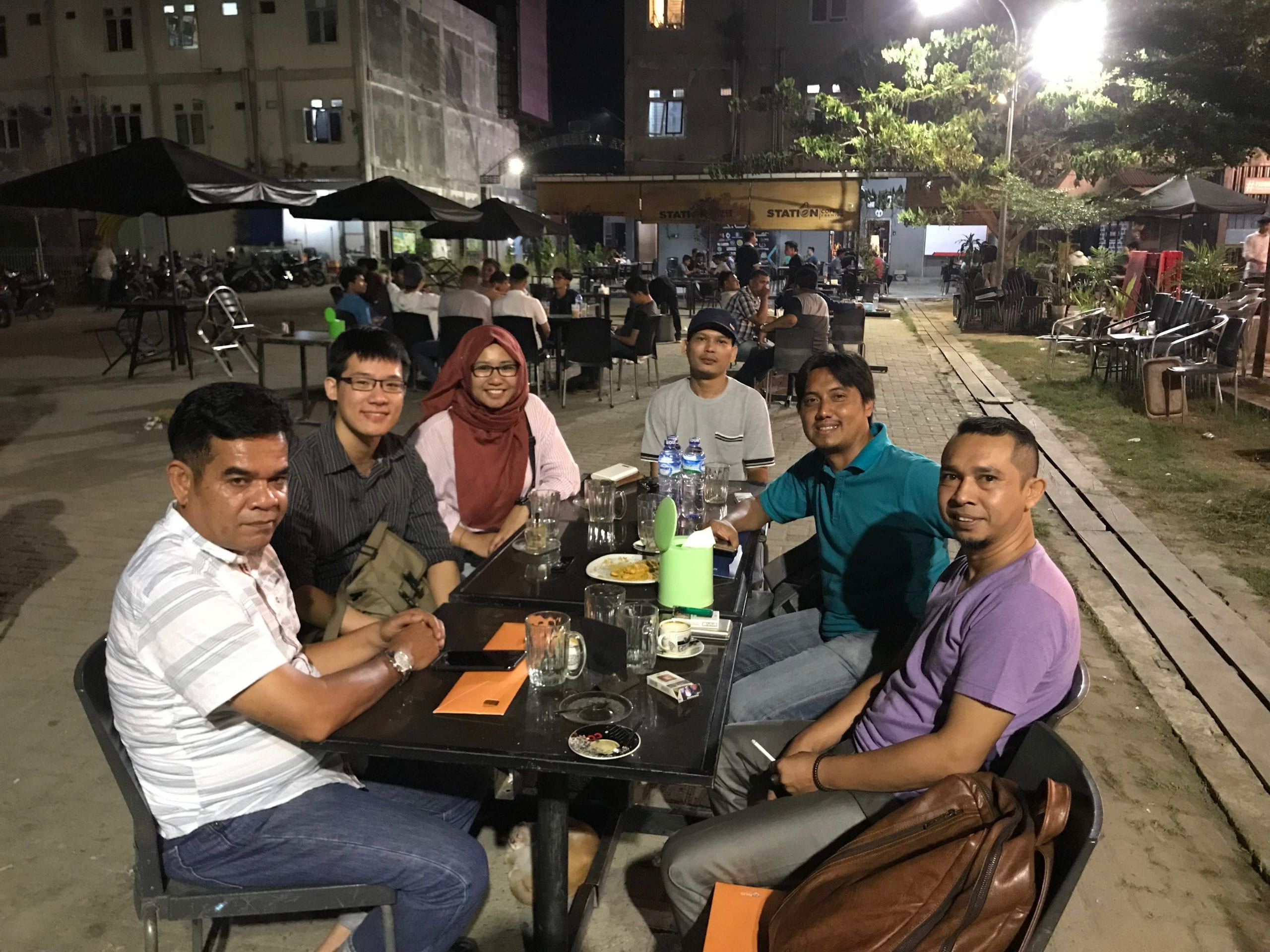
By around 1996 however, university students in Banda Aceh got to have a better sense when they compared their experiences. By 2001, it was harder and harder to meet openly under marital law. Yet, university students found ways to meet, including in the meunasah (a small scale neighborhood mosque for the village).
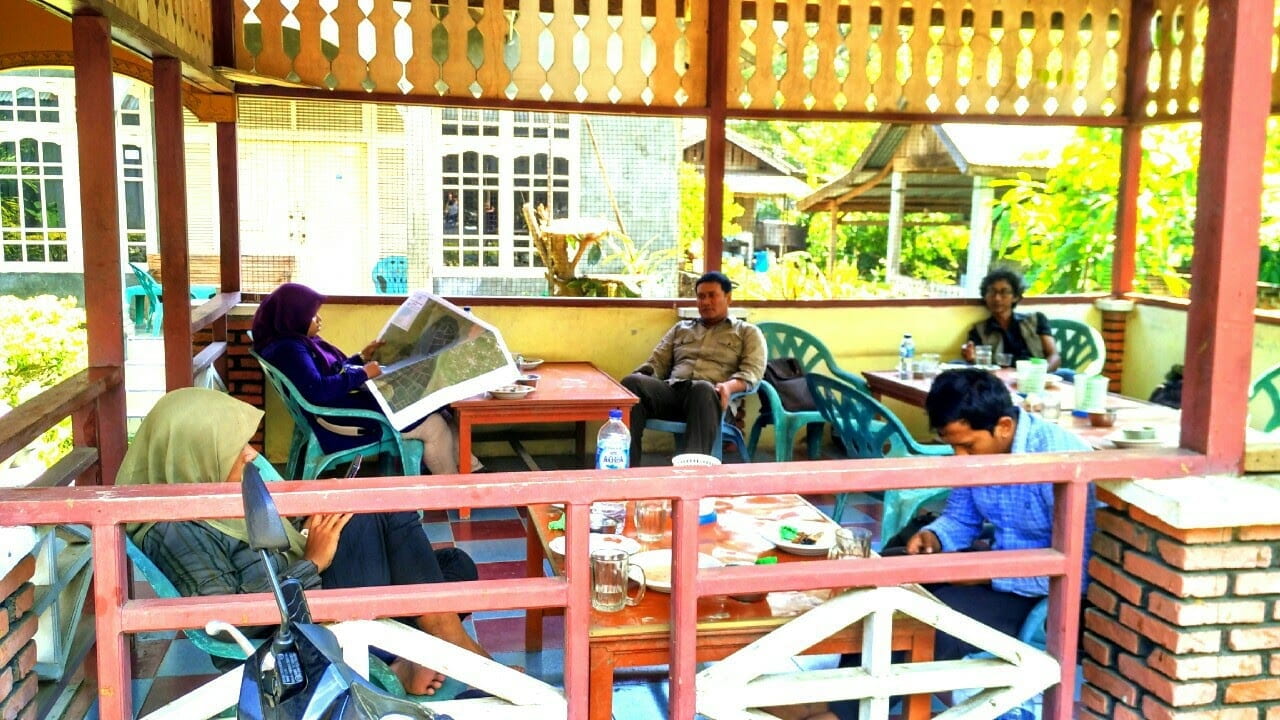
These meetings didn’t merely involve planning mobilization, but entailed discussions of Karl Marx’s Das Kapital and Paolo Freire’s Pedagogy of the Oppressed, as one activist who majored in engineering recalled. It seems that what brought the student activist networks together was not merely shared grievances – either personal losses or a sense that the Acehnese nation was being violated. What made the movement unique was how they channeled their energy towards devouring “banned books” to make sense of what was happening, and what ought to be done. Unsurprisingly, many of these university students would take it on themselves to descend from the intellectual safe space in Banda Aceh back to the villages.
Today, these political networks can operate much more openly.
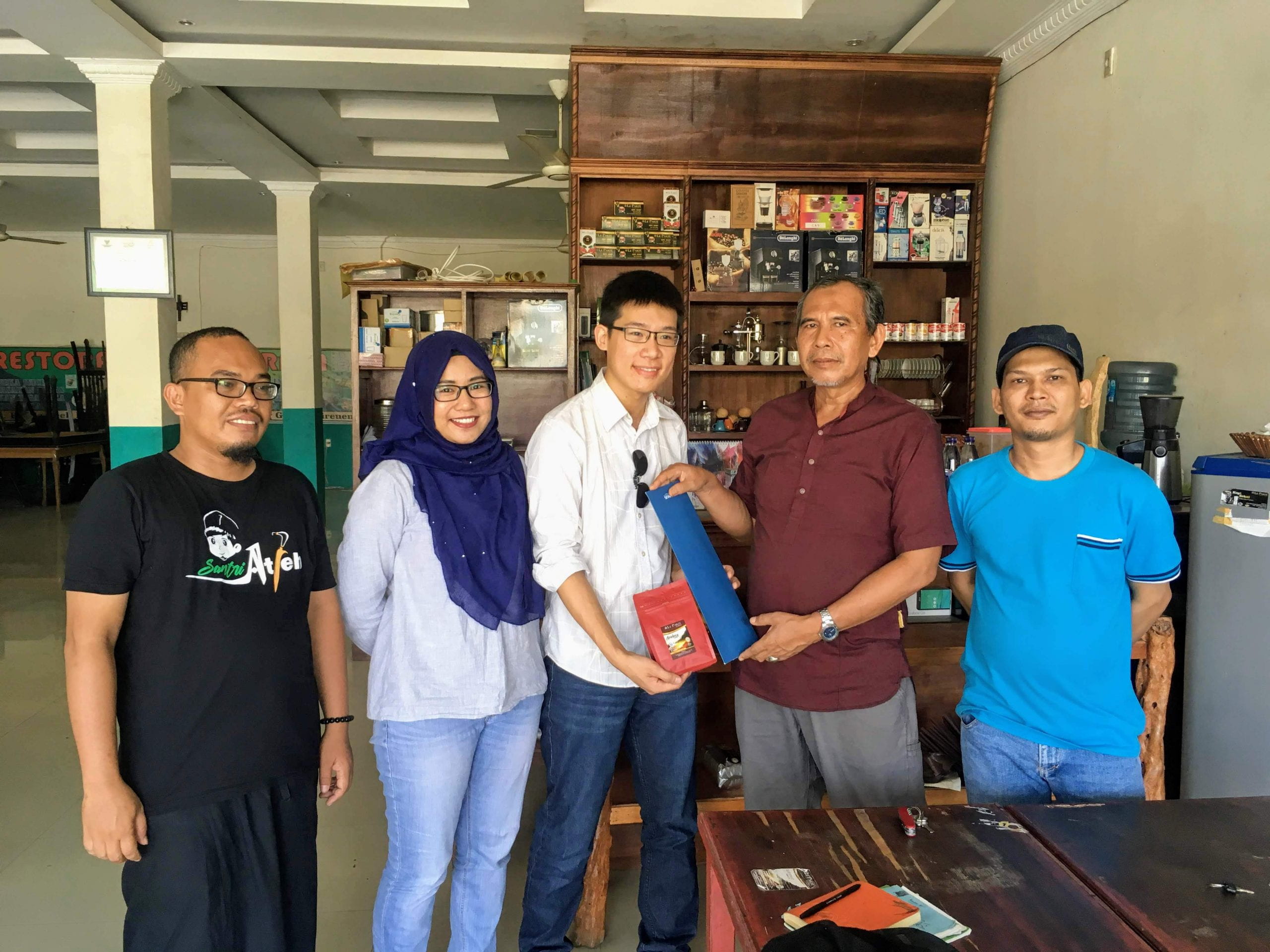
Moreover, the preferred site of struggle is no longer with guns, but through democratic politics. Rather, the preferred site of political discussion is the coffee shop – where the likes of Marx, Friere, Gramsci or other revolutionaries are openly talked about – where political visions are born and networks made.
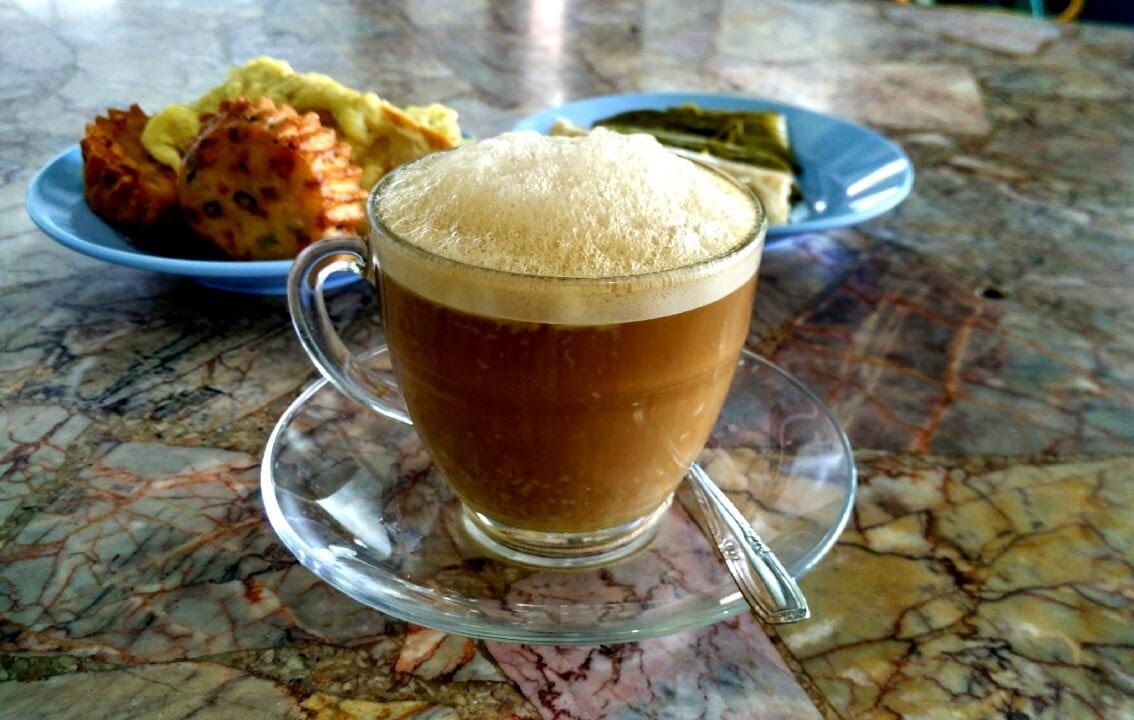
Or, for that matter, over durians, the “King of Fruits:”
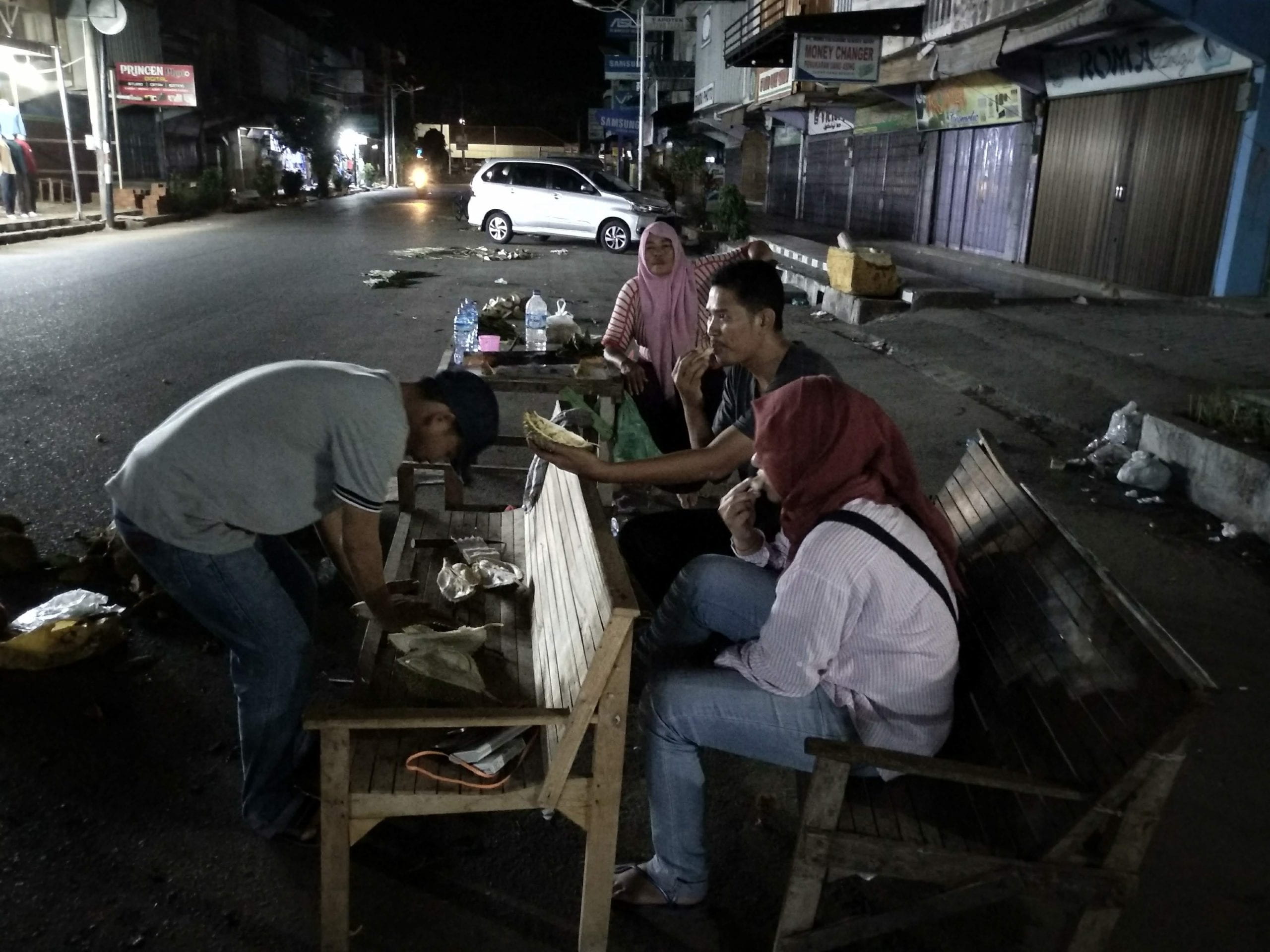
Below, a durian seller helps us open the durians:
So what politics / philosophy is in a cup of coffee?
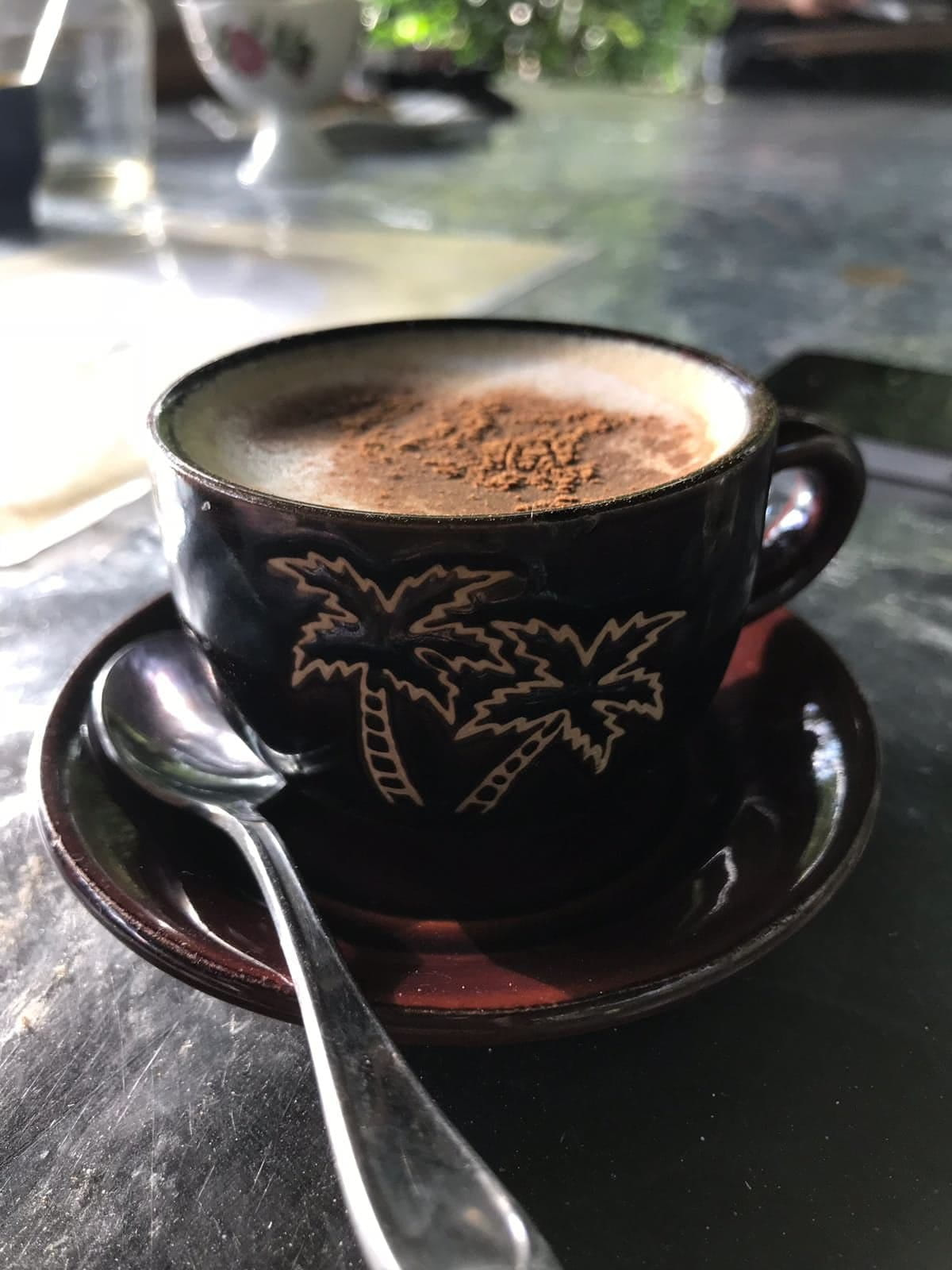
A lot, if we learn to pay attention.
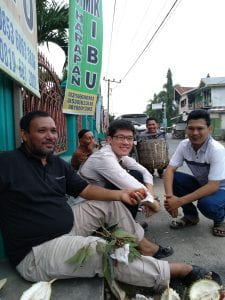
Amoz JY Hor (center) is PhD student in Political Science at the George Washington University. His research explores how emotions affect the way the subaltern is understood in practices of humanitarianism.
